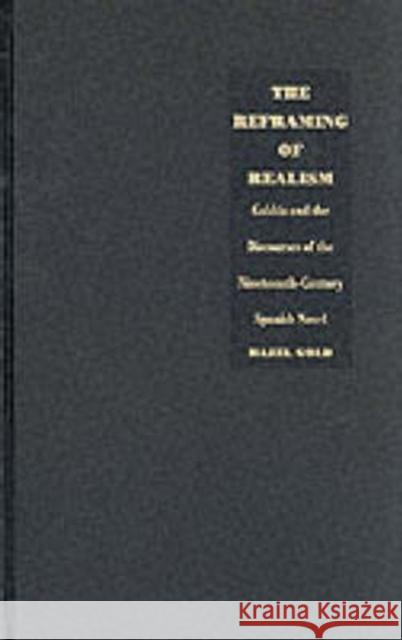The Reframing of Realism: Galdós & the Discourses of the 19th-Century Spanish Novel » książka
The Reframing of Realism: Galdós & the Discourses of the 19th-Century Spanish Novel
ISBN-13: 9780822313342 / Angielski / Twarda / 1993 / 255 str.
The Reframing of Realism: Galdós & the Discourses of the 19th-Century Spanish Novel
ISBN-13: 9780822313342 / Angielski / Twarda / 1993 / 255 str.
(netto: 422,74 VAT: 5%)
Najniższa cena z 30 dni: 429,69
ok. 30 dni roboczych.
Darmowa dostawa!
In virtually every aspect of human behavior, ritual, language, and art, perceptions are organized through the act of framing. In the writing of Benito Perez Galdos, Spain's most prolific and innovative nineteenth-century novelist, Hazel Gold finds this principle insistently at work. By exploring Galdos's methods of structuring and evaluating literary and historical experience, Gold illuminates the novelist's art and uncovers the far-reaching narratological, social, and epistemological implications of his framing strategies.
A close look at Galdos's novels reveals the artist at pains to contain and interpret what he perceived to be the distinctive and often disheartening experience of bourgeois liberalism of his day. At the same time, he can be seen here undermining or negating the accepted conventions of realist fiction. Looking beyond text to context, Gold examines the ways in which Galdos's work itself has been framed by readers and critics in accordance with changing allegiances to contemporary literary theory and the canon.
The highly ambiguous status of the frame in Galdos's fictions confirms the author's own signal position as a writer poised at the limits between realism and modernity. Gold's work will command the interest of students of Spanish and comparative literature, narrative theory, and the novel, as well as all those for whom realism and representation are at issue.











